While those considering expat life will have many questions about the differences between life in their home country and a popular expat destination like Cuenca, members of the LGBTQ+ community will have concerns more specific to their wants and needs. Among those concerns are legal protections, availability of health care specific to their needs, social opportunities, and the ability to live openly as an LGBTQ+ person without fear of discrimination, harassment, or violence. Though Cuenca is regularly mentioned as a top spot for expat relocation, it’s not known as one of the world’s LGBTQ+ hotspots, and little has been published about queer life here. Accordingly, we’re happy to provide this comprehensive guide on LGBTQ living in Cuenca. We spoke with LGBTQ+ expats and native Cuencanos alike to provide an insider’s perspective.
A city that celebrates individuality in a country that protects its potentially marginalized populations
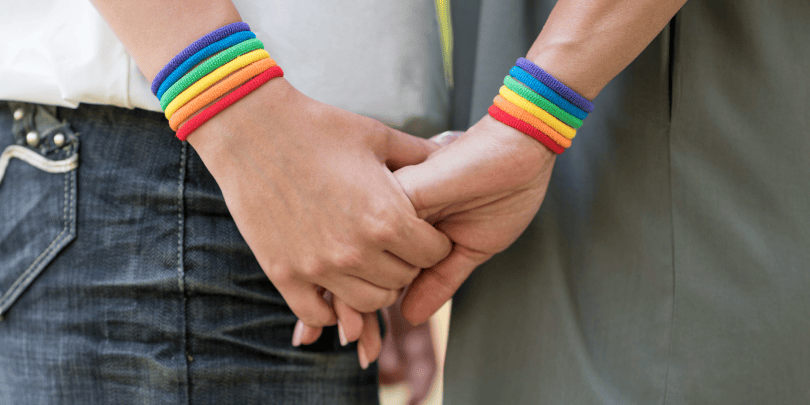
Anyone possessing some familiarity with this city of 600,000 residents in south central Ecuador will not be surprised to learn that a city that is home to four major universities, is considered the arts capital of Ecuador, and is a UNESCO World Heritage Site for its stunningly preserved colonial architecture, would be the sort of progressive community that is open to alternative lifestyles. Yet this acceptance is more than a cultural norm. The national constitution adopted in 2008 prohibits discrimination on the basis of “ethnic belonging, place of birth, age, sex, gender identity, cultural identity, civil status, language, religion, ideology, political affiliation, legal record, socio-economic condition, migratory status, sexual orientation, health status, HIV carrier, disability, physical differences or any other distinguishing features.” The government also recognizes same-sex marriages.
Those who may be inclined to compare Cuenca to big cities or gay retirement/tourism meccas like Palm Springs, California, or Fort Lauderdale, Florida, will not find as large nor as visible an LGBTQ+ community here (except for the large and growing annual Pride Parade and Festival held in June or July – more on that later). There is no dedicated LGBTQ+ Community Center, nor health clinic; and no specifically gay or Lesbian neighborhood with a concentration of bars and other businesses with pride flags hanging in the windows. (If you do see an abundance of rainbow flags, it is probably during election season and the flags you see represent the Pachakutik political party.) That said, Cuenca has a significant and welcoming LGBTQ+ expat community and the resources an LGBTQ+ expat may be seeking – they just may not be as visible nor as easily found as they might be in Palm Springs. And that’s the reason for writing this guide!
Social media is widely used by Cuenca’s LGBTQ+ expat community
Gays and Lesbians have been among the many expats settling in Cuenca at least since the boom in immigration began in late 2009. And while Cuenca has had gay bars for some time, the main way LGBTQ+ expats have found each other has been through social media. Facebook has several groups specific to expats living in Ecuador, many of whom live in Cuenca (estimates are that 1/3 of the 33,000 expats in Ecuador live in Cuenca). Some of these groups, like LGBTQ+ Living in Ecuador are specific to the LGBTQ+ community, but there are many more that attract a general audience of current or prospective expats where one is likely to find other LGBTQ+ people or allies.
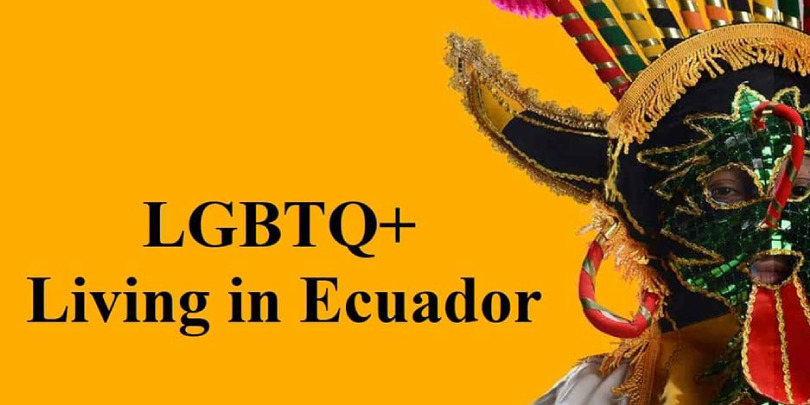
Laura Davis, who moved from the Dallas-Fort Worth area with her wife Diane in 2022, began reaching out to gay women and men in Cuenca on Facebook as she and Diane were planning their move. These online correspondences led to friendships which led to further networking among those in Cuenca’s LGBTQ+ community. By the time Laura and Diane moved to Cuenca, they had already established a circle of friends from which they could build further acquaintances. This writer had a similar experience in meeting other gay ex-pats online who were generous enough to act as tour guides/ambassadors when I made a pre-move exploratory visit.
The LGBTQ+ Living in Ecuador group organizes a monthly weekend brunch that offers an opportunity to meet other LGBTQ expats and begin friendships that are further developed outside of the regular meetings. This is a closed group, but anyone interested is invited to request membership.
LGTBQ-friendly organizations
As Cuenca attracts expats who wish to be active and socially engaged, it should not be surprising to learn that the city offers many groups and activities that attract LGBTQ+ participants and allies and thus are great vehicles for building a social circle. Among them are Azuay Community Theatre, a non-professional theatre company that presents plays in English, Democrats Abroad, the idiomART intercultural creative center, and the weekly Trivia Contests held at the popular expat sports bar Common Grounds every Tuesday evening.
A community that’s integrated into the larger expat community socially and geographically
While there is a significant and cohesive community of LGBTQ+ expats, most of the members of that community I spoke with find that community to be well integrated into the larger expat community and to enjoy a diverse social circle of straight as well as LGBTQ+ friends. “I don’t think people here look at each other in terms of such labels,” Davis says. She and her wife Diane not only socialize with other women who are straight and bi as well as gay but have also traveled with a straight couple on a cruise. Mark Deckard, a straight, married man who is involved in the Azuay Community Theatre, notes that he enjoys having a more diverse group of friends in Cuenca than he had back in St. Louis, where his acquaintances included only a few gay friends.
The similarity of experiences and the sharing of a common language are probably the factors that draw LGBTQ+ expats to expats of other orientations. Accordingly, apart from the previously mentioned LGBTQ+ social groups. Cuenca’s LGBTQ+ expats are most likely to be found whenever expats are found, like the restaurants Sunrise Café, Kolo, La Guarida, Common Grounds, and Nomada; or bars like the Inca Lounge. And with Cuenca being a medium-sized city, with 600,000 people living in a relatively concentrated space, it’s common to run into friends and acquaintances whenever one leaves the house. There’s no need to assemble in a certain area in hopes of chance encounters with friends.
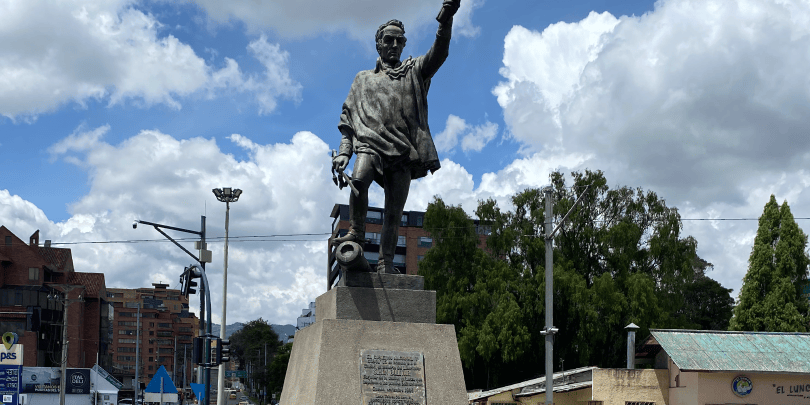
In terms of housing, LGBTQ+ expats are most likely to live in neighborhoods with the highest concentrations of expats generally. The neighborhoods most popular with expats are the contiguous west side areas called “Gringolandia,” known for its North American-style high rises; and Puertas del Sol, which has some high rises but a greater number of single-family homes. The area boasts several businesses more oriented to serving expats with product offerings familiar to North Americans and English-speaking staff. Also in the neighborhood are the American-style supermarket chain Supermaxi and two gyms (Sparta Gym and Fox Gym) that have English-speaking trainers on staff and a number of gringo members.
Other popular neighborhoods for expats are the Centro Historico, El Vergel just south of the Centro; and on the southwest side of the city, the condominiums along the Yanuncay River on Avenida Primero de Mayo. Anecdotally though, I would estimate that at least half of my expat friends (straight and LGBTQ+ alike) live in Gringolandia, within a half-mile of the three-way intersection of Las Americas, Ordoñez Lasso, and Gran Colombia.
Public and private healthcare providers meet the specific needs of LGBTQ+ people in Cuenca
While Cuenca has no comprehensive LGBTQ+ health center of the sort one can find in the largest American cities and gay meccas like Palm Springs and Fort Lauderdale, Cuenca has a high level of medical expertise through its private and public hospitals, LGBTQ+-friendly physicians, and free or low-cost pharmaceuticals for gay men’s health care needs. While it may take some networking and investigation to find a doctor with whom you’re comfortable discussing healthcare needs, and some traveling between various healthcare sites, the services you will need are available here.
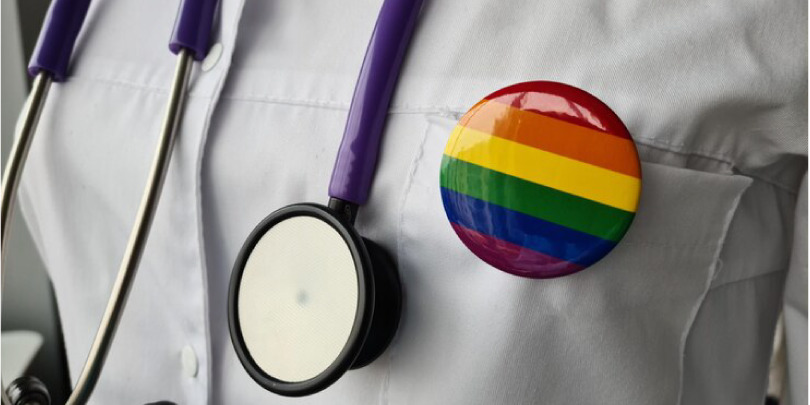
As with other aspects of expat life in Cuenca, the first criterion is to find a resource that is expat-friendly. That probably means English-speaking. For primary care, a number of the LGBTQ+ ex-pats I spoke with see and are very satisfied with Dr. Maite Depreeuw, a native of Belgium who speaks English, Spanish, French, and Dutch. Men and women that I have spoken with find her to be very capable and LGBTQ+ friendly. She can be reached on What’s App at 098 212 3992, or by email at [email protected]. Another primary care doctor popular with expats (including this writer) is Dr. Anthony Guillen, a native Cuencano who has spent many years living in the US and is completely fluent in English. He can be reached by phone or WhatsApp at +593 99 539 8105. While both these doctors are recommended, it will always be advisable to ask other expats for their suggestions as well.
Those who are HIV+ will have more specific needs. Bob Doyle, who moved from the US to Cuenca in 2019, has been living with HIV for 37 years. As such, he was well-educated as to his needs before moving to Cuenca, but once here he began to inquire about specialists who could care for his HIV condition. A Cuenca neurologist he consulted about a different condition recommended the epidemiologist Dr. Marcos Molina (+593 98 327 7926) who is on staff at Cuenca’s Hospital del Rio, for Bob’s HIV care. Bob accessed Dr. Molina through Ecuador’s public health system, IESS, which is available to all with Ecuadorian visas for about $75 per month (and family members can be added for an additional $15.00). After a two-month waiting period, pre-existing conditions are allowed, and IESS provides HIV medications to its enrollees for free, a huge savings from the drug co-payments required in the US. The injectable medications for HIV are not yet available in Ecuador. Since the IESS healthcare system can be bureaucratic and difficult to navigate, Bob hired a Spanish-speaking healthcare facilitator to make appointments for him and communicate with Spanish-speaking healthcare personnel.
Additional resources for HIV+ people can be found through Kimirina – an organization that provides AIDS and HIV support including rapid testing, vaccines, PrEP, and PEP preventatives. Kimirina (www.kimirina.org) has offices in Guayaquil, Machala (each of which is approximately a 3-1/2-hour drive from Cuenca), Quito, and other cities in Ecuador.
PrEP, the drug used to prevent HIV infection, is now available in Cuenca for free to everyone at the Public Health Clinic (Centro de Salud No. 1) at Av. Huayna Capac 1-270 Y Pisar Capac.
Interaction with the Cuenca LGBTQ+ Community

As mentioned above, Cuenca’s LGBTQ+ presence is not as visible as queer communities often are in larger cities. This may be a result of the generally socially conservative family-oriented culture of Latin America. Gay-oriented businesses are not all located in the same business district, and those businesses are not generally clearly labeled as LGBTQ+ with pride colors or other clues. Nor do LGBTQ+ people here tend to reside in a single area. More commonly, they will live at home with their parents until marriage (and sometimes even after marriage) rather than going out to get their own place in a gay neighborhood. As my friend José Murillo, who is in his thirties and has been socially and politically active in the local scene notes, there is not a prevailing gay fashion sense. You won’t see a lot of young men dressed in tight tank tops or short shorts. (Don’t let the tight jeans fool you – all the young men and women wear them). Public displays of affection between same-gender people are seen but are not common. Still, there is a significant and increasingly visible LGBTQ+ community in Cuenca with which expats may interact. Cuenca’s 2023 Pride Parade and Festival attracted over 15,000 participants. And Andrés Zambrano, owner of the La Guarida restaurant, notes that today nobody is shy about being seen in a line waiting to get into Cuenca’s popular gay disco “The View”, as they were in the past.
Nightlife and alternative ways to make connections

There are three gay bars in Cuenca, but it should be noted all are discos that according to Murillo are generally loud and difficult in which to hear others speak, even assuming one speaks the same language. José notes that he doesn’t see a lot of gringos (who generally are beyond the prime age for bar going) at these bars. When he does, he says they don’t tend to stay very long or return another night. But check the bars out if you like. The View is located in the Centro at Juan Jaramillo 5-84 and Hermano Miguel and is open Thursdays, Fridays, and Saturdays from 9 pm to 2 am. A few blocks away is Noa Noa, on Presidente Borrero near the corner of Presidente Córdova. It’s known for its karaoke nights and is open from 4 pm–midnight every night except Sunday. The newest addition to the scene is Euphoria Club Cuenca, outside the Centro on a section of Av. Remigio Crespo ( at Ricardo Muñoz) is home to a large number of bars and late-night eateries. Judging from photos on their Facebook pages Euphoria seems to attract a younger and more gender-mixed crowd than The View, which seems in the photos to attract more men and not quite as young a crowd. Take a look at the photos and see what you think.
Supplementing the bar scene are occasional parties, like the “Black and Blue Party” held at an events center in December 2023. There are also two spas for gay men: Taboo and Sense Cuenca, discreetly tucked away on side streets, that are open late afternoons and evenings every day. Also popular for making connections are the dating apps Grindr and Tinder, and the social media sites Facebook and Instagram.
Annual Pride celebration and other special events
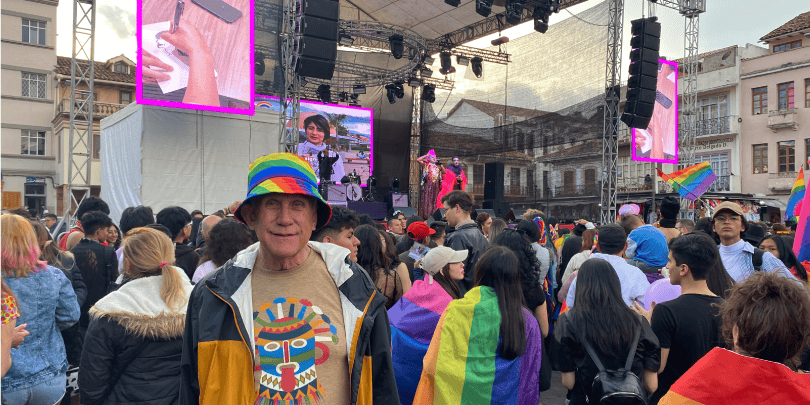
The largest and most visible LGBTQ+ event of the year is the annual Pride Parade and Festival, held in June or July of each year. The specific date is determined each year in consultation with parade committees in Guayaquil and Quito so that the various parades can be held on different dates from each other. Cuenca’s events are organized by a committee of ten called “Orgullo Cuenca” (orgullo is the Spanish word for Pride). Orgullo’s coordinator, Juan Jose Cordero, says the parade, which began in 2017 and attracted only 100 people, reached a high of 15,000 participants and spectators in 2023. The marchers assembled in Parque San Blas and walked a 1.1 km route through the Centro to Plaza San Francisco, where the celebration continued into the evening with live music on a stage assembled for the event and vendors selling all sorts of rainbow-colored merchandise. Cordero says the parade attracts visitors from all over Ecuador and many other countries in the Americas and Europe.
Orgullo Cuenca organizes a full month of events for Pride Month in addition to the parade and festival. The events are mainly educational and supportive workshops and are conducted in cooperation with other organizations serving the LGBTQ+ Community. Some of the events in 2023 included a self-defense class, human rights workshops, how to officially change one’s name and gender on their government ID, health workshops, HIV and STI testing, and a drag show. This committee of just nine people additionally presents events throughout the year, like the “Reina de Carnival” (“Queen of the Carnival”) and the “Dama de Rojo” (“Lady in Red”) in February, and special events for International Lesbian Day and Trans Day. They claim to hold 300 events of varying sizes throughout the year.
Service organizations for the LGBTQ+ Community in Cuenca
As mentioned earlier, there is no LGBTQ+ Community Center of the type that is found in large cities in other parts of the world. There are, however, several organizations in Cuenca and elsewhere in Ecuador providing the sorts of supportive services one might find at such LGBTQ+ centers elsewhere.
- Elizabeth Blackwell Foundation – an organization that fights for the rights of marginalized groups, combating the hateful acts that stem from prejudice against such groups.
- Dialogo Diverso – A non-profit organization based in Quito with the mission of defending and promoting democracy, and the rights of the LGBTIQ+ population, women, and other groups in vulnerable situations.
- Silueta Cuenca LGBTI – “We are volunteers committed to the fight for the vindication of the rights of the LGB population”
- Alter Ego – Promoting the art of cross-dressing and drag. Hosts a weekly online radio show.
- Verde Equilibrante – A sexual diversity organization that promotes respect, inclusion, and promotion of LGBTI+ rights from the canton of Cuenca, Ecuador. The organization offers counseling services, workshops, and social inclusion events.
- Cholas Transfeministas – Provides workshops and information regarding healthcare and legal rights.
Additionally, Cuenca boasts the only radio show in Ecuador that addresses LGBTIQ+, gender, human rights, and nature issues. The Sin Etiquetas (“Without Labels”) program has been broadcast since 2016 and features interviews with social organizations and experts on topics including politics, feminism, and LGBTIQ+. It is broadcast every Sunday from 8:00 p.m. to 10:00 p.m. and can be heard through 96.1FM in Azuay, www.la961.com, the La Suprema Estación application, FB Live, and Youtube Live. It also produces content related to LGBTIQ+ human rights, cases of femicide, trans femicide, and hate crime, as well as communicational campaigns and the creation of the Cuenca Queer Comic that addresses fictional and non-fiction stories related to the rights of the LGBTIQ+ population in Cuenca and Ecuador.
Travel to and around Cuenca
None of the LGBTQ+ Cuenca residents interviewed identified any hotels, hostels, or guesthouses in Cuenca as specifically targeted to the LGBTQ+ community, though there was agreement that all the accommodations in Cuenca are likely to be LGBTQ+-friendly. It may sometimes happen that a hotel clerk might ask to confirm that two adults of the same gender do indeed want to share a bed, but there is unlikely to be any discrimination or harassment.
A six-hour drive from Cuenca, in the town of Montanita on the Pacific coast, is Casa del Merman at Gay Montanita House. This is a clothing-optional resort that has a sister resort in St.Petersburg, Florida.
One travel agency popular with LGBTQ+ expats is the CATSA agency, located just across the Tomebamba River from the Centro, on Av. 12 de Abril and Av. José Peralta.
Acceptance of LGBTQ+ people in Cuenca
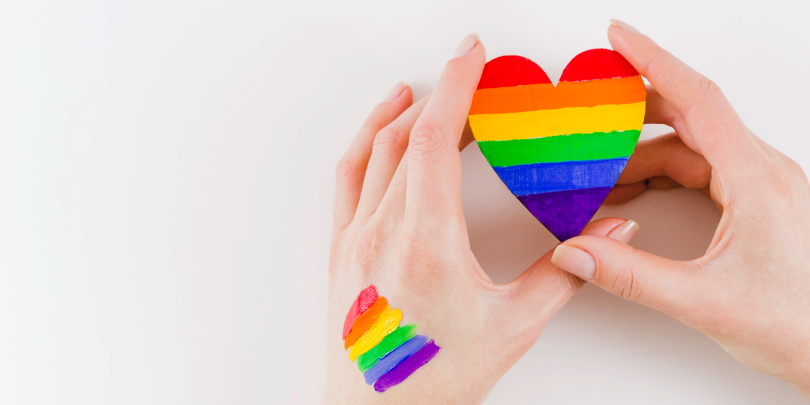
Expats and native Cuencanos alike find Cuenca to be safe and with rare exceptions, to be a welcoming place for LGBTQ+ people. Sarah Hanenbauer, owner of IdiomArt and a resident of Cuenca for the past 11 years, says the community has changed dramatically over her time in Cuenca. “Cuenca was known for being super conservative and traditional, but attitudes have shifted. The pendulum has swung, not to the opposite extreme, but to a middle ground where nobody other than some in the Church and a few fanatics seems to object. Looking at the crowds watching this year’s Pride Parade, you could see people were viewing the marchers with some curiosity and amusement, but not disapproval.”
In my own experience, I once told a talkative cab driver about my “esposo” (husband) and he asked me if I meant to say “esposa” (wife). He seemed not to be surprised that I would have a husband but was just clarifying that I said what I meant and was not forgetting to use the proper gender – a common mistake for us native English speakers who are accustomed to assigning genders to all nouns.
In some circumstances, acceptance may be harder for some of the local LGBTQ+ population to achieve. There is still a certain amount of disapproval from some family members. Juan José Cordero, as the most public face of Orgullo Cuenca, says he has received some written threats, but that they have never been acted upon and he cites the country’s legal protections against discrimination and violence as effective in preventing violence. Though José Murillo noted that public displays of affection might spark some disapproving looks, he said they are unlikely to provoke a verbal or violent response. In our discussions, neither Zambrano, a native Cuencano who lives with his husband (also a native); nor Hanenbauer, who lives with her Cuencana wife, noted any significant discrimination. As is evidenced by the growth in attendance at Cuenca’s Pride Parades and the efforts of the grassroots organization advocating for LGBTQ+ rights, it seems likely that what is already a safe and welcoming city for the LGBTQ+ community will grow in visibility and strength.
Safety considerations
Public safety best practices for LGBTQ+ people seem to be no different than the safety practices one would be advised to follow in any city. One should be aware of their surroundings, avoid dimly lit and sparsely occupied places at night, and keep their belongings out of sight and secure.
How to check out Cuenca’s LGBTQ+ Community
Those exploring the possibility of expat life overseas or simply interested in visiting this beautiful city and who are looking for a welcoming and inclusive community are invited to check out Cuenca. A good first step would be to contact any of the resources and organizations mentioned here as well as reach out to expats in Cuenca via social media sites for their recommendations and to begin networking.

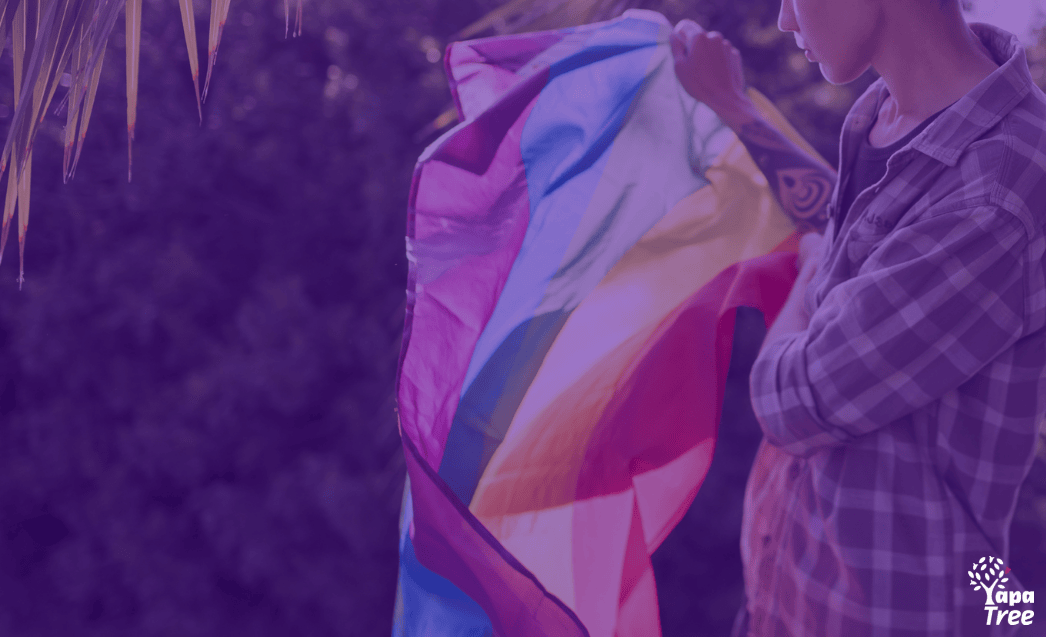



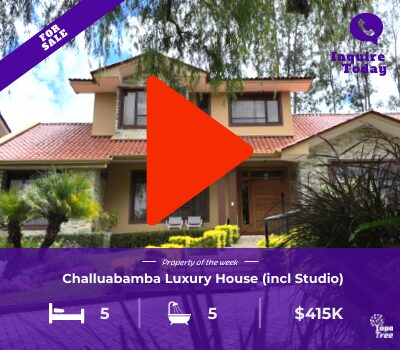
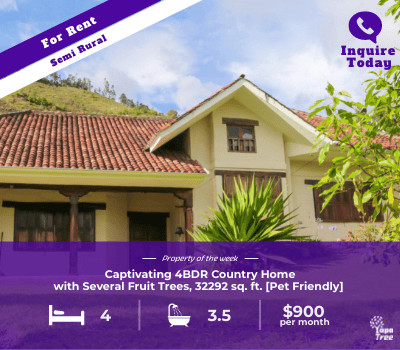


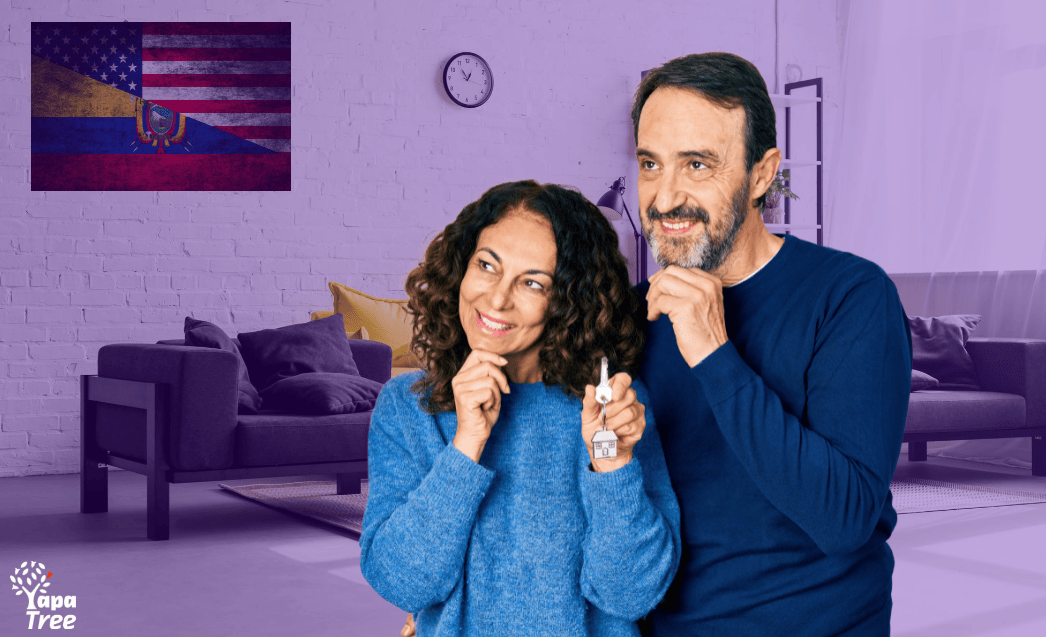

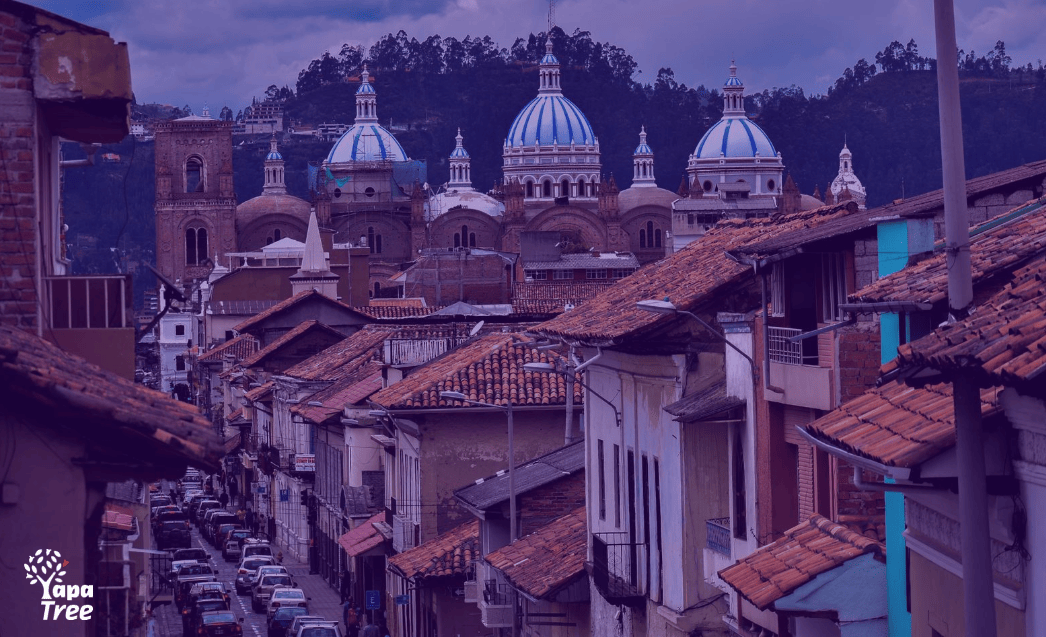
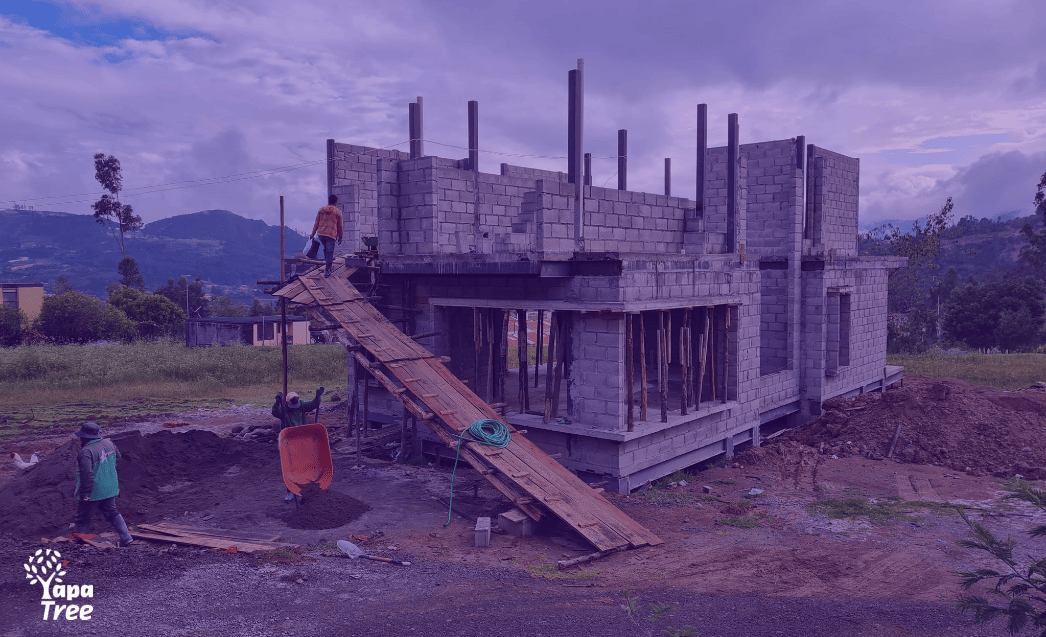
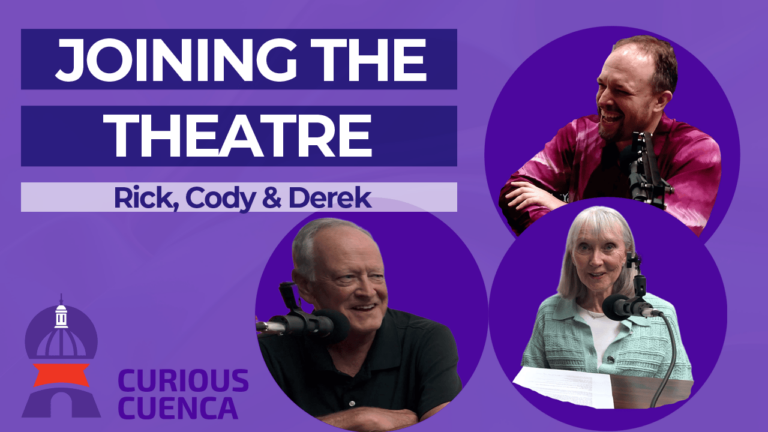
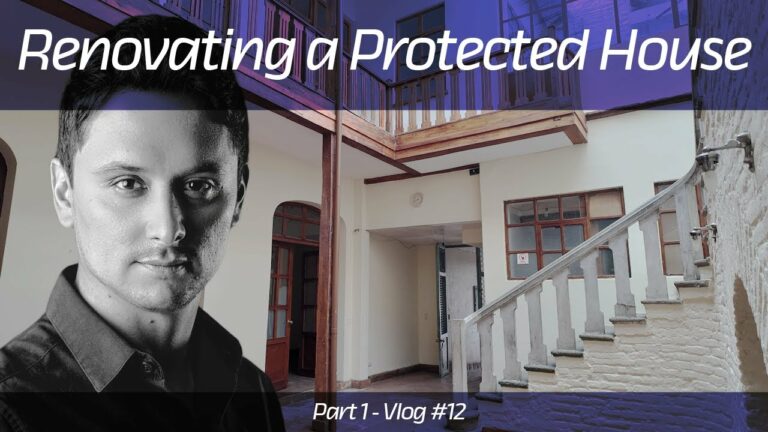
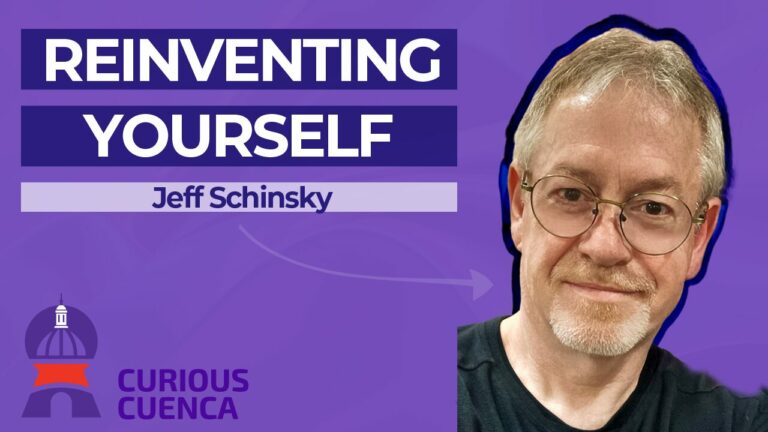
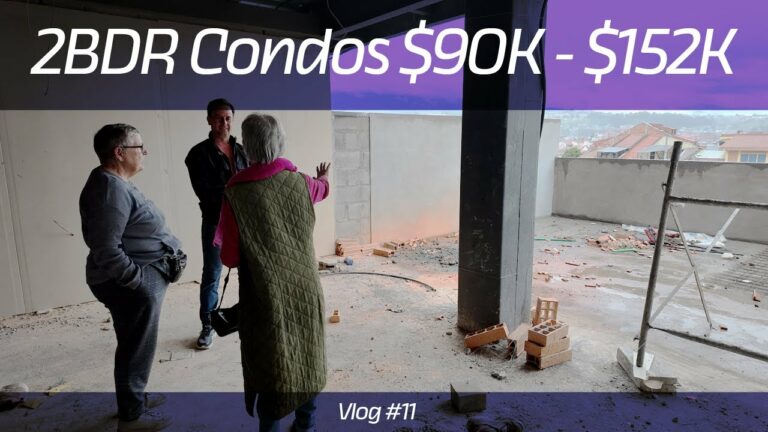
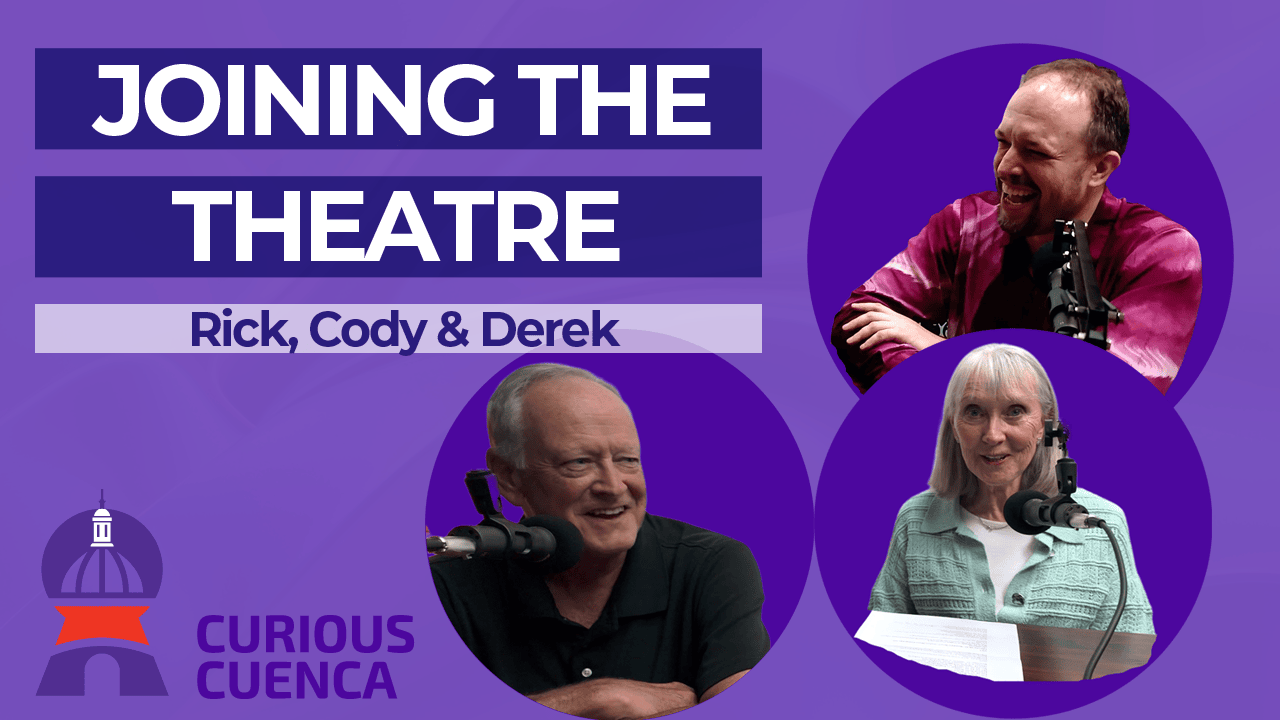
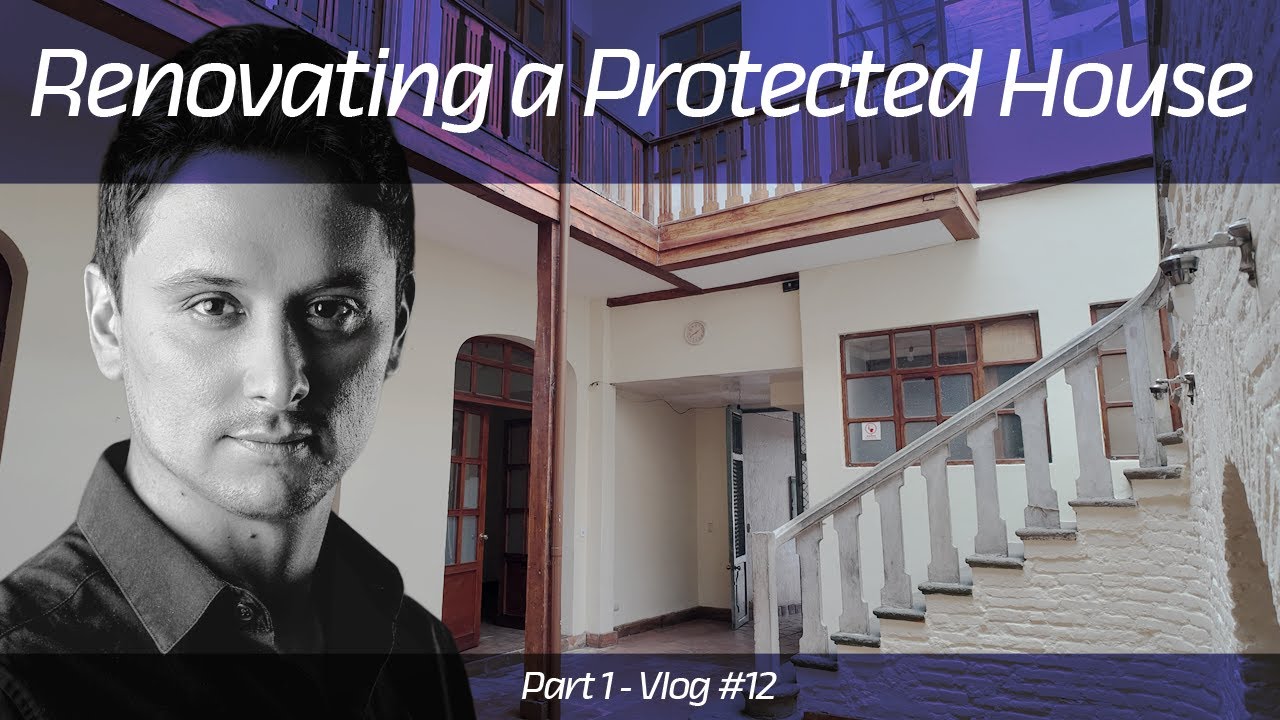
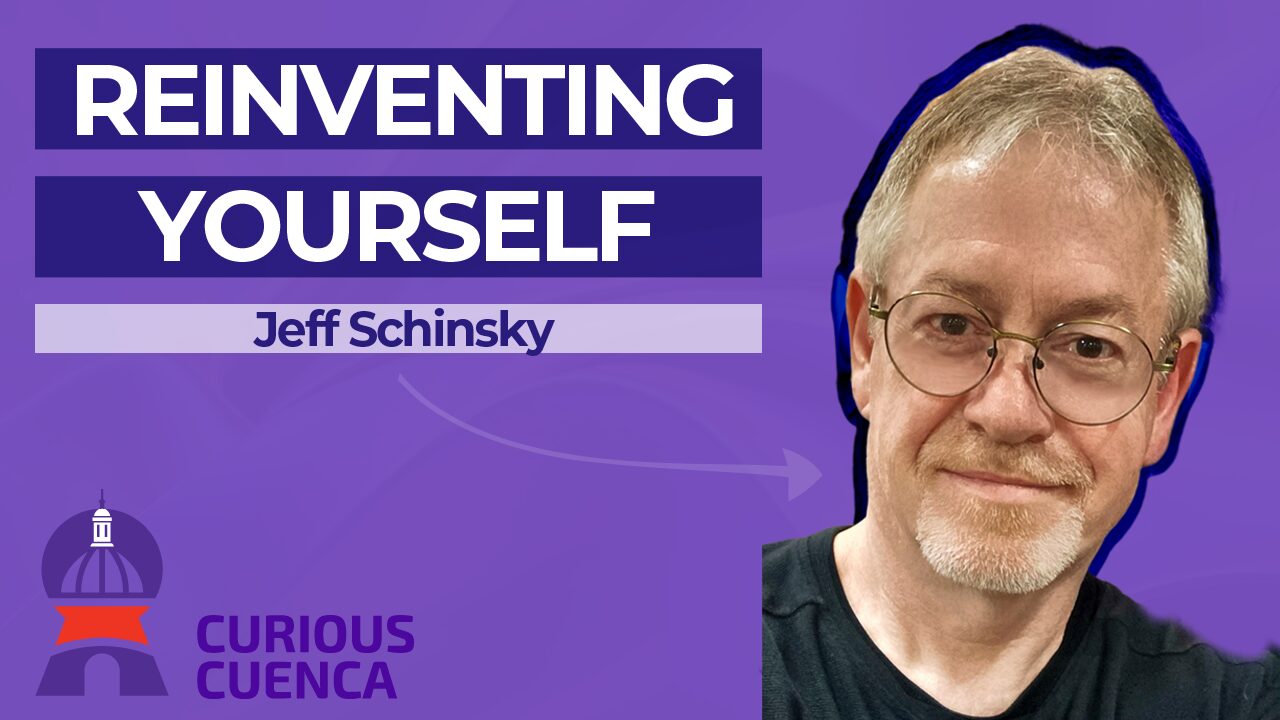
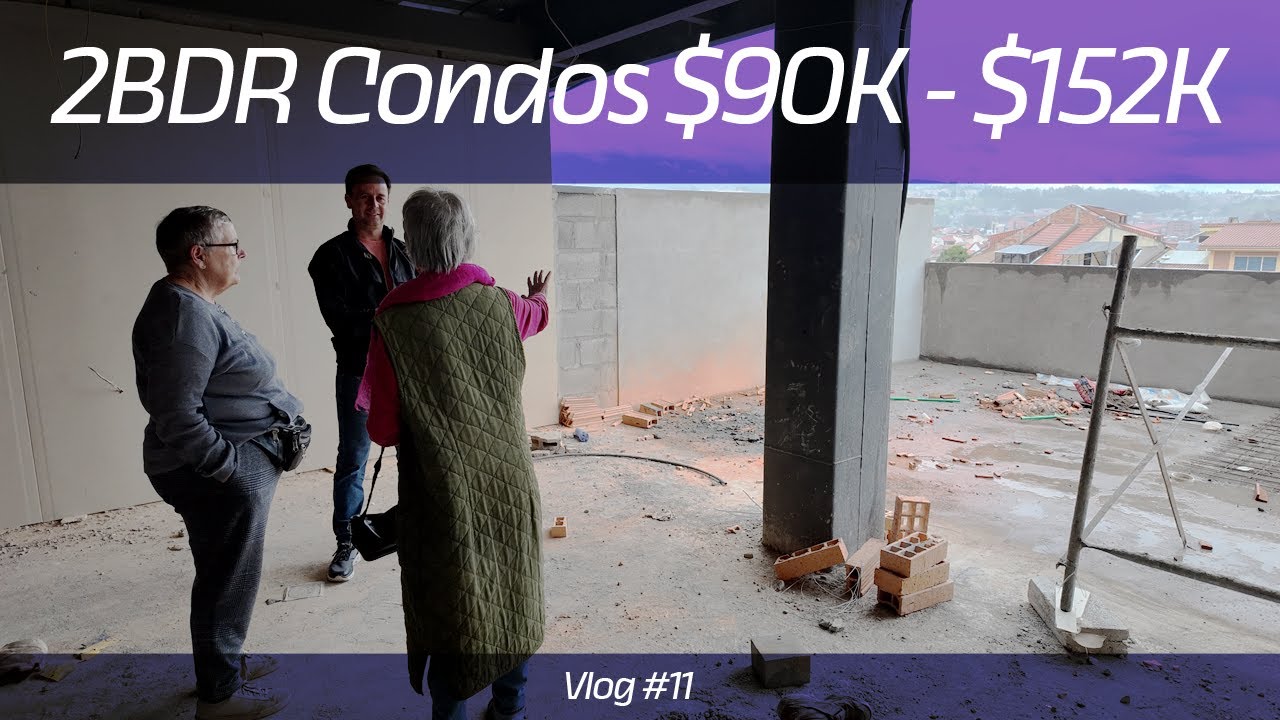
2 Responses
This was a thoroughly complete article that left no stone unturned. We made an exploratory trip here about 9 years ago now. I did not like Cuenca in the least. Then a couple of years later, we decided to try again using two different home exchanges of two weeks each. The second exchange, we met a gay couple in the same building, became friends and they introduced us to several people. It was a totally embracing experience.
Hogar de Esperanza is Cuenca’s gay-owned charity that supports people with HIV. Together with my partner, Jorge, we help hundreds of Ecuadorians with HIV as well as expats trying to navigate the medical system. We make medical appointments and even go with expats to the appointments to translate, if necessary. We also run a Thrift Shop and Expat Service center which is also staffed by gay Ecuadorians. We can be found at Juan Montalvo 8-28 and Mariscal Sucre.